With the power of a bylaw, the City of Montréal is tackling its greenhouse gas emissions by banning natural gas in most new buildings starting in October 2024.
Adopted at the end of October, this new bylaw prohibits gas hookups for any new building of 600 square meters or less per floor, that are three-floors or less.
Although a seemingly small measure, as Canada’s second largest city, this will have an incredible impact. Buildings in Montréal account for nearly 30% of the city’s emissions, and it will help the city achieve its goal of having carbon neutral buildings by 2040.
“This is a major step forward in the de-carbonization of buildings, a key factor in mitigating climate change,” explains Patrick Bonin, Climate and Energy Campaigner at Greenpeace Canada.
And this win was made possible because of you!
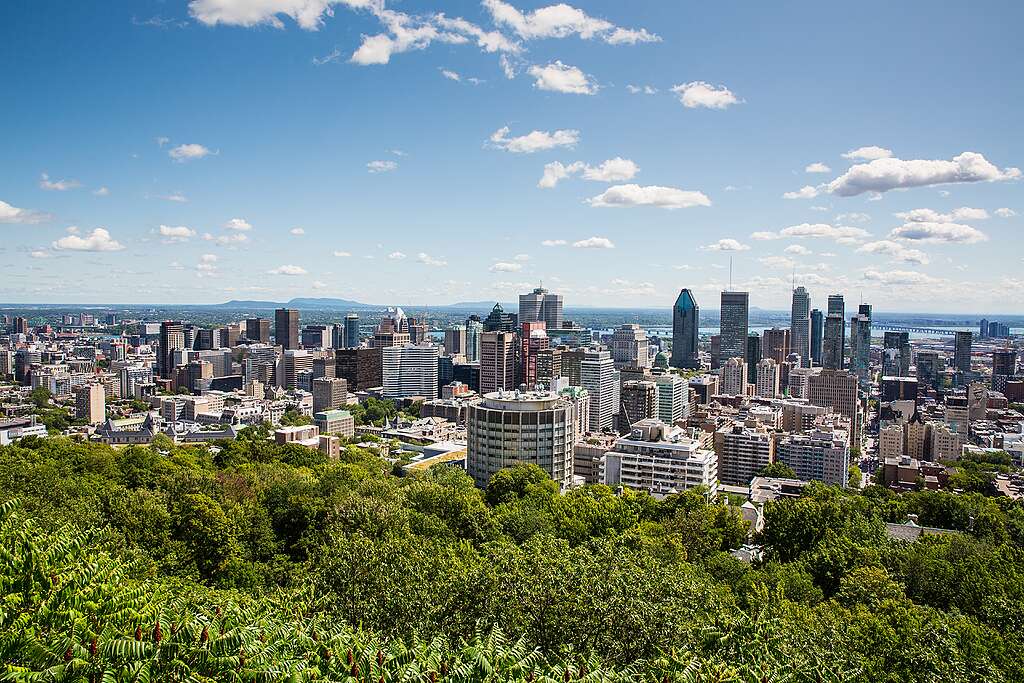
As a Greenpeace supporter, you help us convince cities like Montréal to take real climate action. Your continued support allows us to campaign for a greener and safer world for all.
Greenpeace Canada helped launch the Let’s Take Out the Gas! coalition in Québec to campaign for cities in the province to remove gas from buildings. “Over the last two years we’ve been denouncing the pro-fossil gas agreement between Hydro-Québec and the gas company Énergir, all while raising awareness of the health risks linked to gas stoves,” explains Bonin.
The campaign included presenting studies and a memorandum to Montréal’s elected officials, and mobilizing the public to call on the city council to regulate and ban gas in new buildings. All of this hard work paid off and demonstrated that once again, people power really is what brings about change!
And it’s important to note that Montréal wasn’t the first to ban gas in new buildings, the city of Prévost in Québec took the lead, and cities Candiac and Mont Saint-Hilaire have since followed suit. Looking beyond Québec, there are a number of cities in British Columbia that have already implemented gas bans, including Vancouver, Nanaimo, Victoria and the municipalities of Saanich and Central Saanich.
It’s so inspiring to see these bylaws come to pass, and we’ll continue working hard to keep this momentum going! Because our ambitions don’t end here, we’re pushing governments to adopt similar regulations on a provincial and federal level.
And the wins don’t stop here. Below you’ll find a snapshot of other recent global campaign victories!
UNITED KINGDOM:
Mass Mobilization Blockades Major Oil Forum
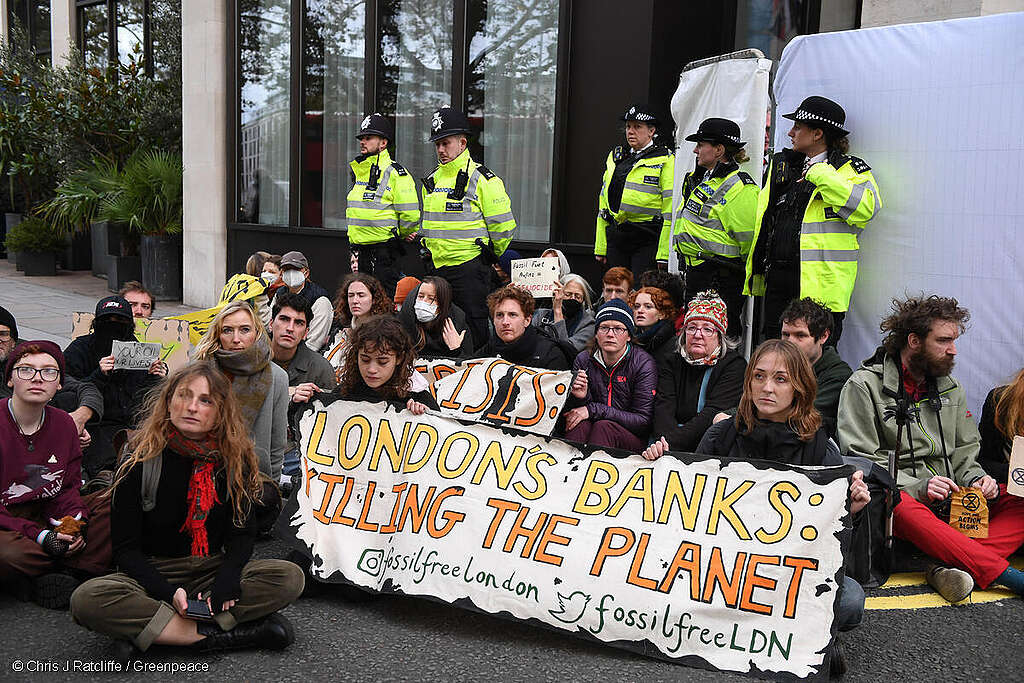
Nearly 300 demonstrators, including Greta Thunberg, successfully shut down the three-day Energy Intelligence Forum (formerly known as the Oil & Money Conference) in London (UK) where the biggest names in the fossil fuel industry were gathering. The CEO of Shell was forced to deliver his keynote on Zoom from another location, while Greenpeace climbers — who had each undergone a major style makeover to blend into a fancy hotel environment for a couple of days prior — dropped a banner saying ‘Make Big Oil Pay’ from the hotel balcony. The shutdown received global press coverage and demonstrated mounting pressure on the fossil fuel industry to pay for damages caused by climate change. The event was a mass-movement collaboration that involved Greenpeace UK, Fossil Free London, Extinction Rebellion, Stop Rosebank, and many others.
MEXICO:
Greenpeace Arctic Sunrise Crew Save Humpback Whale
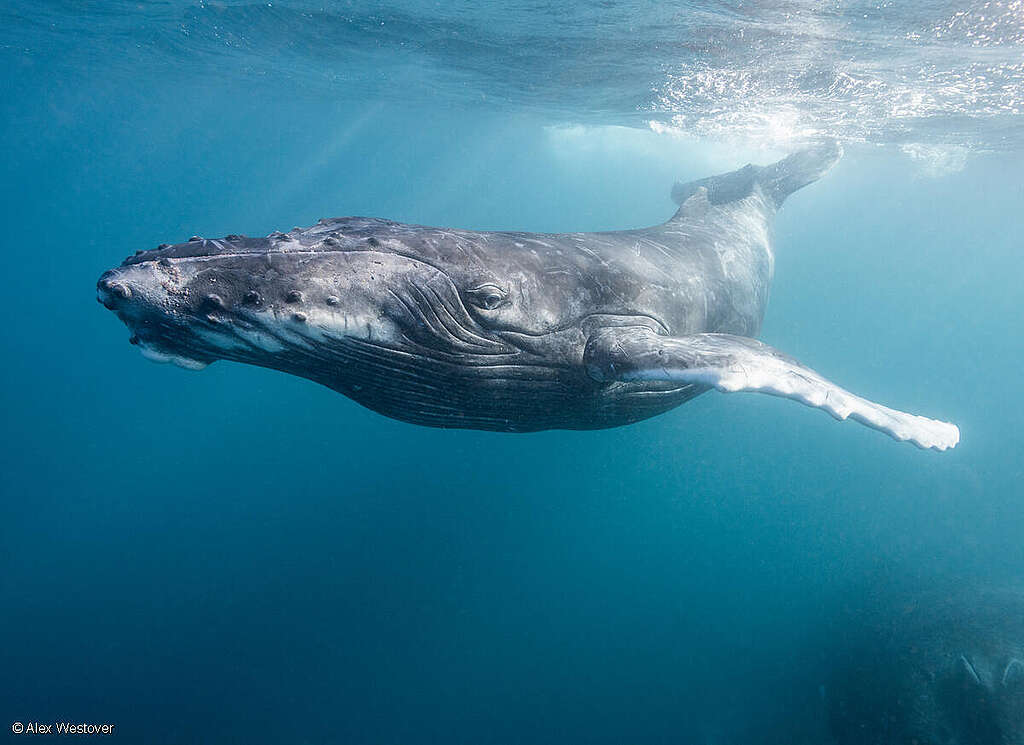
Last month, the crew of the Greenpeace ship Arctic Sunrise noticed a humpback whale in distress in the water, and after closer inspection realized the whale’s fluke was entangled in fishing gear. The remote location and the imminent threat to the whale compelled the crew to act swiftly. After a tense hour and half, the crew were able to free the whale, and it was able to swim to freedom. This event emphasizes the dangers marine mammals face from plastic pollution and the urgent need for governments to ratify the Global Ocean Treaty and instate ocean sanctuaries. Watch the video of the rescue here.
INDIA:
Delhi women’s transit campaign
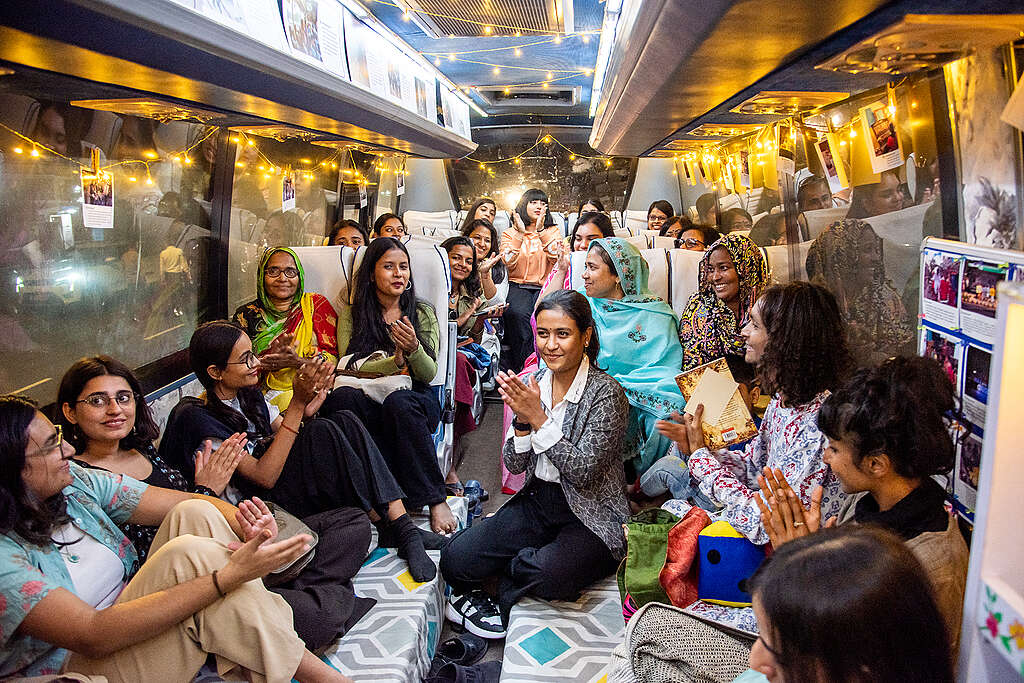
Greenpeace India launched a month-long “Bus Tour of Delhi” to demand an increase in the number of public buses in Delhi and for the city’s bus infrastructure to be inclusive, safe and accessible to all citizens. Using a rented bus decorated with fun messages and stories about inclusive and safe mobility, they engaged with various communities across the city, providing an opportunity for participants to gain the sense of ‘re-owning’ public spaces. Together they celebrated agency and freedom with a strong message against any form of gender-based discrimination in public mobility spaces.
CANADA:
Québec says no more nukes after Greenpeace Conference
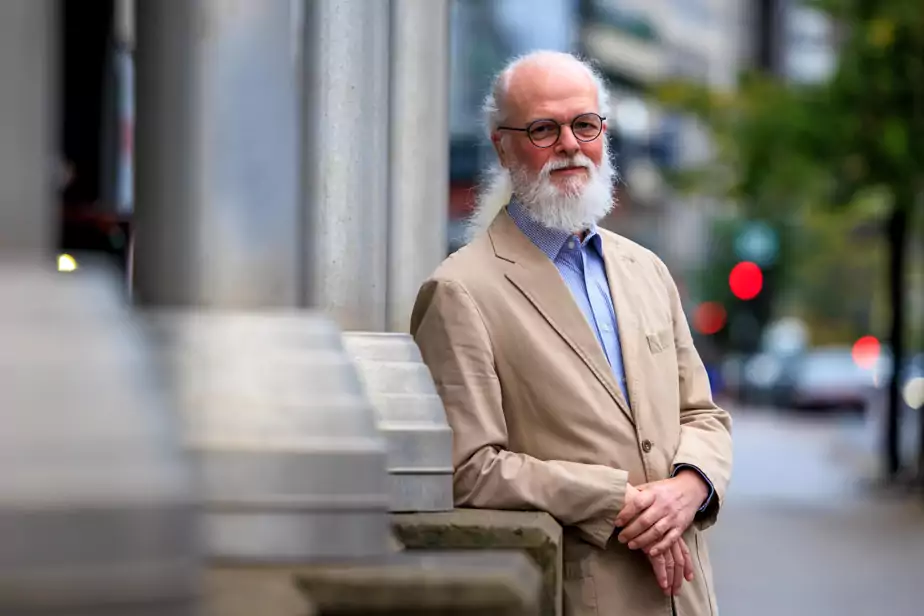
The province of Quebec is reviewing options to increase its energy production capacity in the coming years, with the reactivation of an old nuclear power plant, Gentilly-2, on the table. In response, Greenpeace Canada co-organized a conference for Mycle Schneider — an independent nuclear energy expert, consultant, and anti-nuclear activist — to discuss nuclear power at the University of Québec, and organized both a radio and print interview for Schneider with La Presse. We take it as no coincidence that after the conference Francois Legault, PM of Québec, declared: “The return to nuclear energy, after the closure of the Gentilly-2 power plant more than a decade ago, does not have the consent of the population. There is therefore no question of diving into it again.”

Discussion
Hopefully, city of Montreal preventing gas emmissions will motivate other cities tp do likewise.